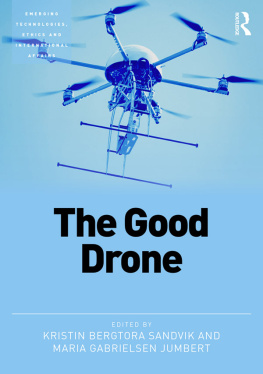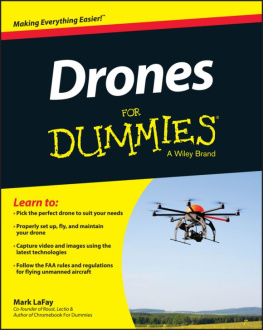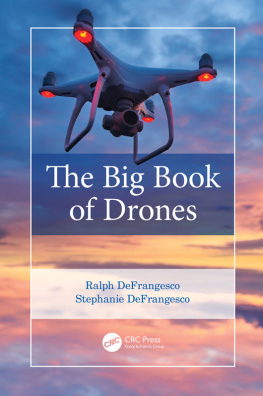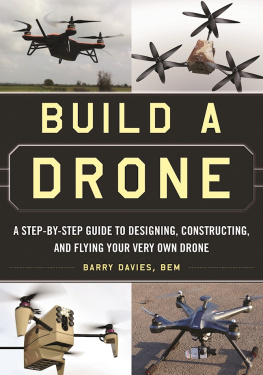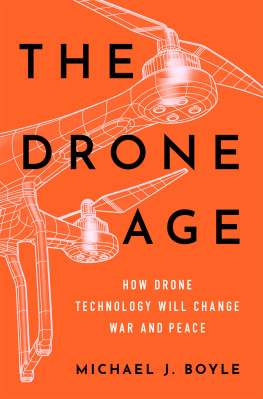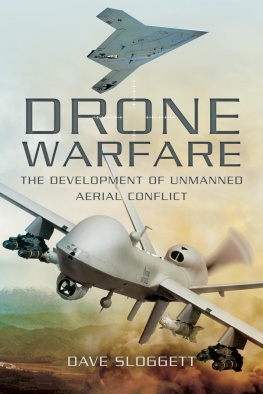The Good Drone
While the military use of drones has been the subject of much scrutiny, the use of drones for humanitarian purposes has so far received little attention. As the starting point for this study, it is argued that the prospect of using drones for humanitarian and other life-saving activities has produced an alternative discourse on drones, dedicated to developing and publicizing the endless possibilities that drones have for doing good. Furthermore, it is suggested that the Good Drone narrative has been appropriated back into the drone warfare discourse, as a strategy to make war more human.
This book explores the role of the Good Drone as an organizing narrative for political projects, technology development and humanitarian action. Its contribution to the debate is to take stock of the multiple logics and rationales according to which drones are good, with a primary objective to initiate a critical conversation about the political currency of good. This study recognizes the many possibilities for the use of drones and takes these possibilities seriously by critically examining the difference the drones functionalities can make, but also what difference the presence of drones themselves as unmanned and flying objects makes. Discussed and analyzed are the implications for the drone industry, user communities, and the areas of crisis where drones are deployed.
Kristin Bergtora Sandvik is Associate Professor at the Department of Criminology and Sociology of Law at the University of Oslo, and Senior Researcher at the Peace Research Institute Oslo (PRIO). She holds a doctorate from Harvard Law School.
Maria Gabrielsen Jumbert is Senior Researcher at PRIO and the Director of the Norwegian Centre for Humanitarian Studies. She holds a PhD from the Institut dEtudes Politiques, SciencesPo Paris.
Emerging technologies, ethics and international affairs
Series editors:
Jai C. Galliott, The University of New South Wales, Australia
Avery Plaw, University of Massachusetts, USA
Katina Michael, University of Wollongong, Australia
This series examines the crucial ethical, legal and public policy questions arising from or exacerbated by the design, development and eventual adoption of new technologies across all related fields, from education and engineering to medicine and military affairs.
The books revolve around two key themes:
Moral issues in research, engineering and design.
Ethical, legal and political/policy issues in the use and regulation of technology.
This series encourages submission of cutting-edge research monographs and edited collections with a particular focus on forward-looking ideas concerning innovative or as yet undeveloped technologies. While there is an expectation that authors will be well grounded in philosophy, law or political science, consideration will be given to future-orientated works that cross these disciplinary boundaries. The interdisciplinary nature of the series editorial team offers the best possible examination of works that address the ethical, legal and social implications of emerging technologies.
Forthcoming titles:
Drones and Responsibility
Legal, Philosophical and Socio-Technical Perspectives on Remotely Controlled Weapons
Edited by Ezio Di Nucci and Filippo Santoni de Sio
Super Soldiers
The Ethical, Legal and Social Implications
Edited by Jai Galliott and Mianna Lotz
Social Robots
Boundaries, Potential, Challenges
Edited by Marco Nrskov
The Good Drone
Edited by Kristin Bergtora Sandvik and Maria Gabrielsen Jumbert
First published 2017
by Routledge
2 Park Square, Milton Park, Abingdon, Oxon OX14 4RN
and by Routledge
711 Third Avenue, New York, NY 10017
Routledge is an imprint of the Taylor & Francis Group, an informa business
2017 selection and editorial matter, Kristin Bergtora Sandvik and Maria Gabrielsen Jumbert; individual chapters, the contributors
The right of Kristin Bergtora Sandvik and Maria Gabrielsen Jumbert to be identified as the authors of the editorial material, and of the authors for their individual chapters, has been asserted in accordance with sections 77 and 78 of the Copyright, Designs and Patents Act 1988.
All rights reserved. No part of this book may be reprinted or reproduced or utilised in any form or by any electronic, mechanical, or other means, now known or hereafter invented, including photocopying and recording, or in any information storage or retrieval system, without permission in writing from the publishers.
Trademark notice: Product or corporate names may be trademarks or registered trademarks, and are used only for identification and explanation without intent to infringe.
British Library Cataloguing in Publication Data
A catalogue record for this book is available from the British Library
Library of Congress Cataloguing in Publication Data
Names: Sandvik, Kristin Bergtora, editor of compilation. |
Jumbert, Maria Gabrielsen, editor of compilation.
Title: The Good Drone / edited by Kristin Bergtora Sandvik and
Maria Gabrielsen Jumbert.
Description: New York, NY : Routledge, [2016] | Includes bibliographical references and index.
Identifiers: LCCN 2016003282 | ISBN 9781472451118 (hardback) |
ISBN 9781315553405 (ebook)
Subjects: LCSH: Drone aircraft. | Drone aircraftMoral and ethical aspects.
Classification: LCC UG1242.D7 G66 2016 | DDC 358.4/14dc23
LC record available at http://lccn.loc.gov/2016003282
ISBN: 9781472451118 (hbk)
ISBN: 9781315553405 (ebk)
Typeset in Times New Roman
by Out of House Publishing
Contents
Maria Gabrielsen Jumbert and Kristin Bergtora Sandvik
Susanne Krasmann
John Karlsrud and Frederik Rosn
Kristoffer Lidn and Kristin Bergtora Sandvik
Maria Gabrielsen Jumbert
Kristin Bergtora Sandvik
Brad Bolman
Serge Wich, Lorna Scott and Lian Pin Koh
Mareile Kaufmann
Kristin Bergtora Sandvik is an Associate Professor at the Department of Criminology and Sociology of Law at the University of Oslo, and a Senior Researcher at the Peace Research Institute Oslo (PRIO), where she also coordinates the research group on humanitarianism. She holds an SJD from Harvard Law School (2008). She has published widely on the normalization of drones and on humanitarian technology, and her work has appeared in inter alia Millennium, Third World Quarterly, International Review of the Red Cross, and BEHEMOTH.
Maria Gabrielsen Jumbert is a Senior Researcher at PRIO and the Director of the Norwegian Centre for Humanitarian Studies. She holds a PhD from the Institut dEtudes Politiques, SciencesPo Paris (2010). Her work focuses on how new information and surveillance technologies produce security and humanitarian practices, especially as related to human mobility. Her work has appeared in inter alia in the Journal of Modern African Studies, Third World Quarterly, the International Review of the Red Cross and the Review of International Studies.
Brad Bolman is a researcher in the History of Science at Harvard University. His work focuses on the connections between military, scientific and technical transformations of the natural world and new transnational exchanges produced by economic globalization. His current project is a manuscript that traces the development of scientific pigs in the twentieth and twenty-first centuries.


